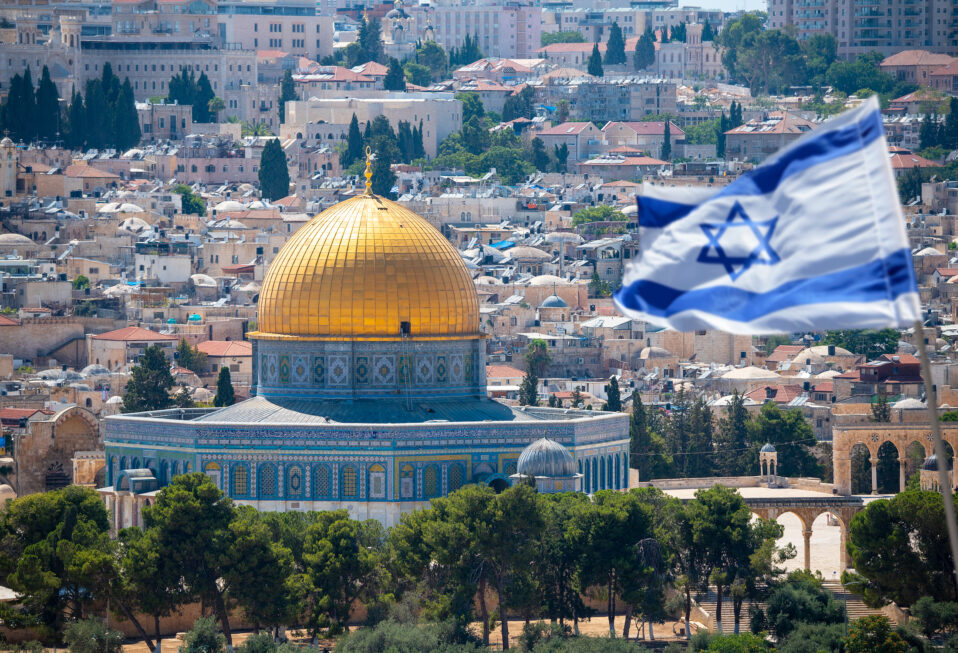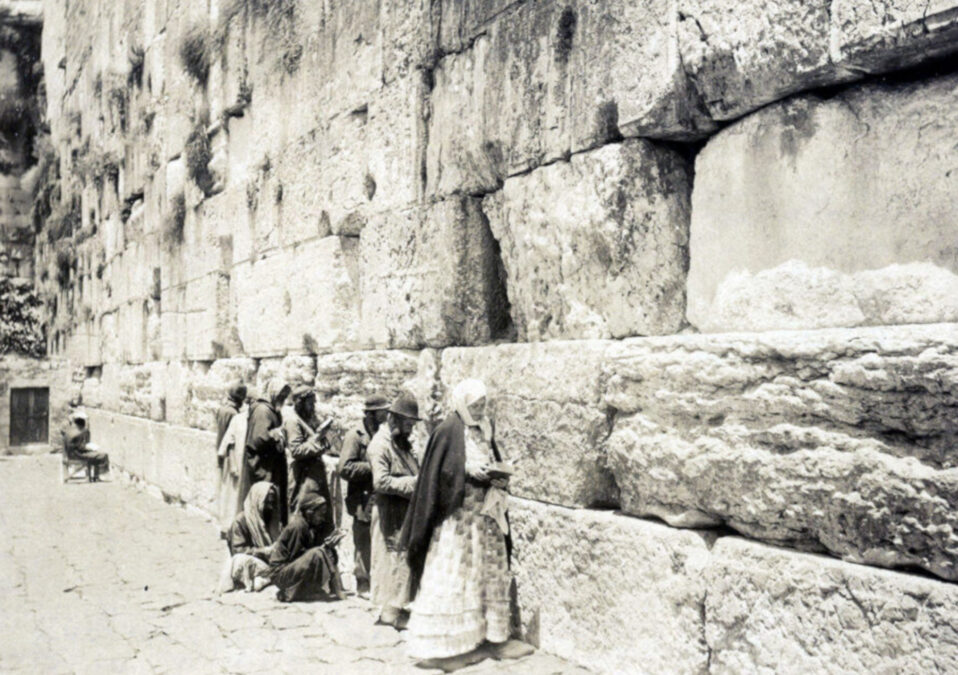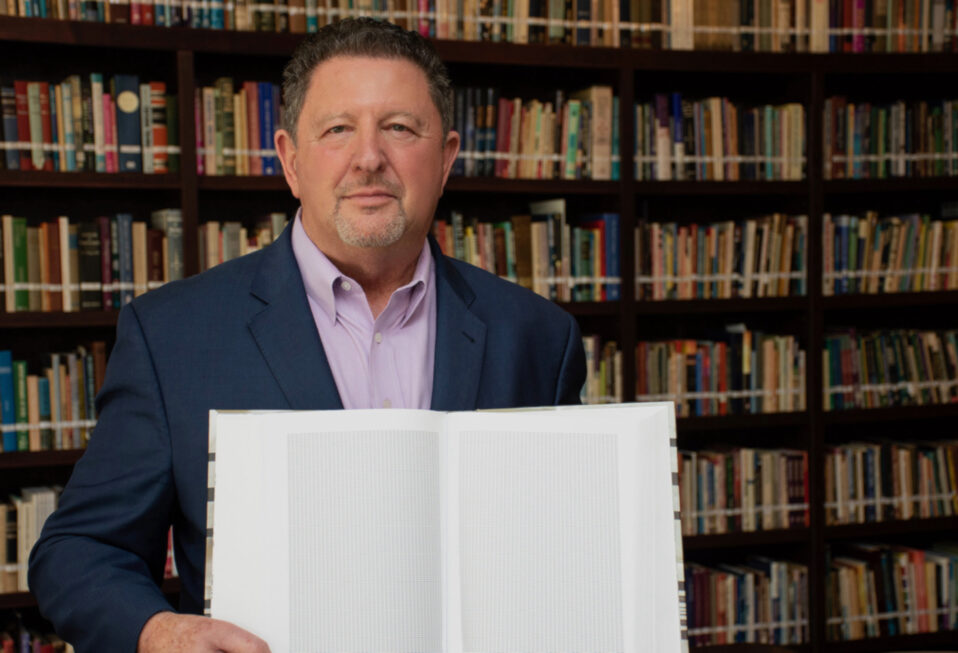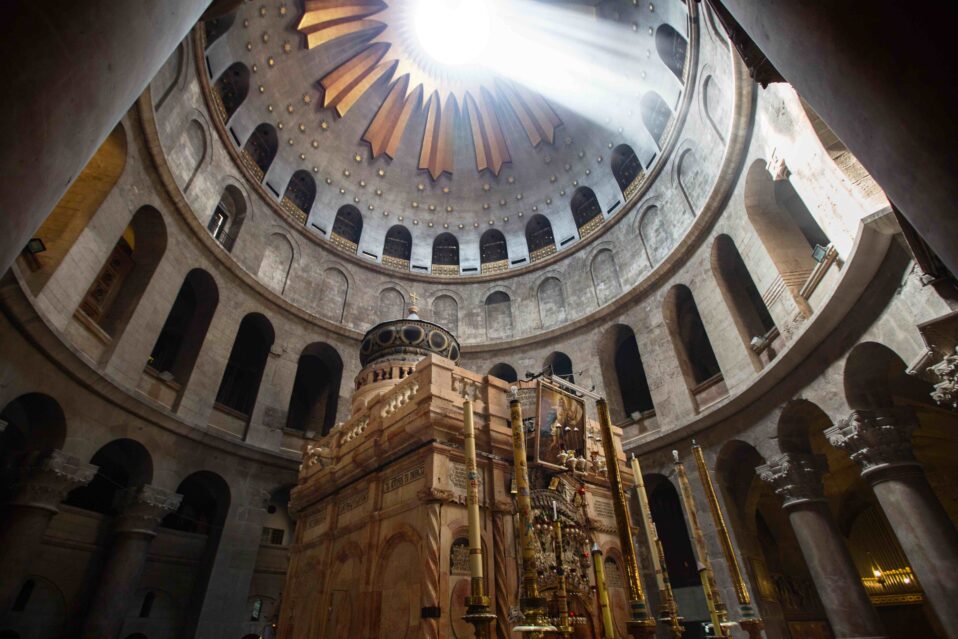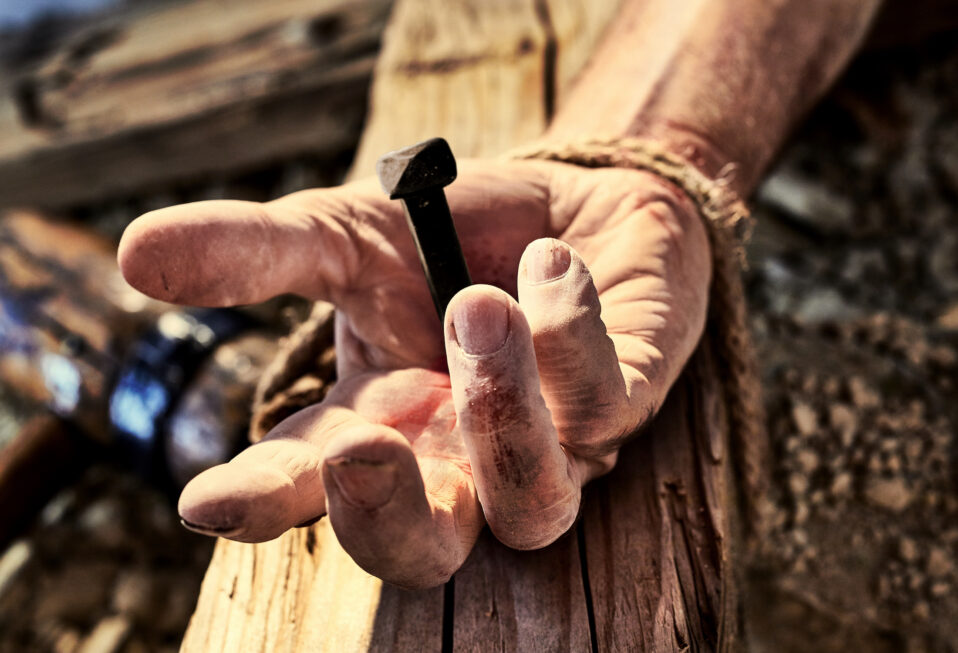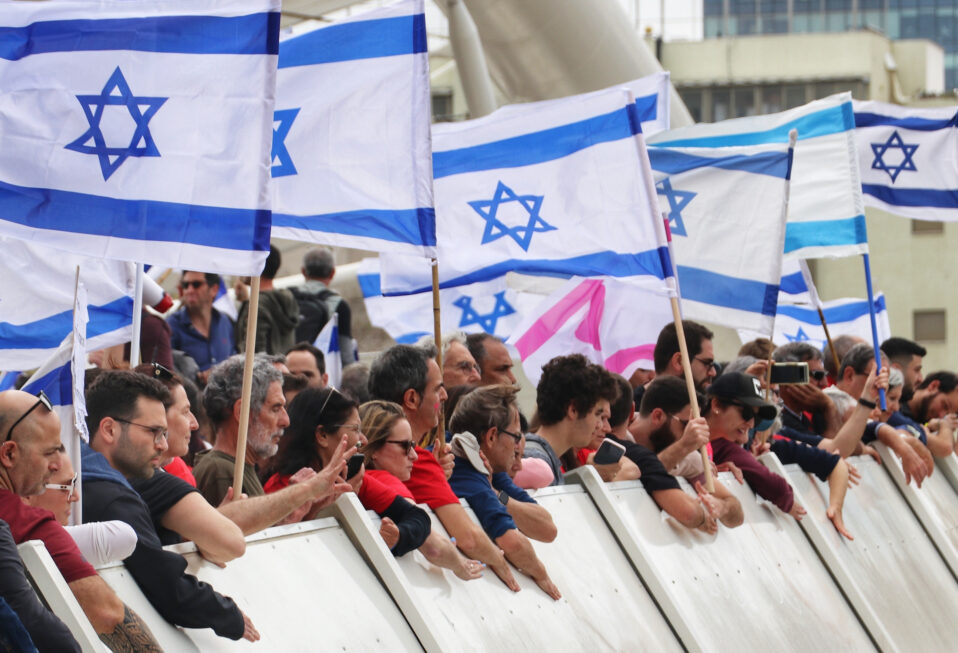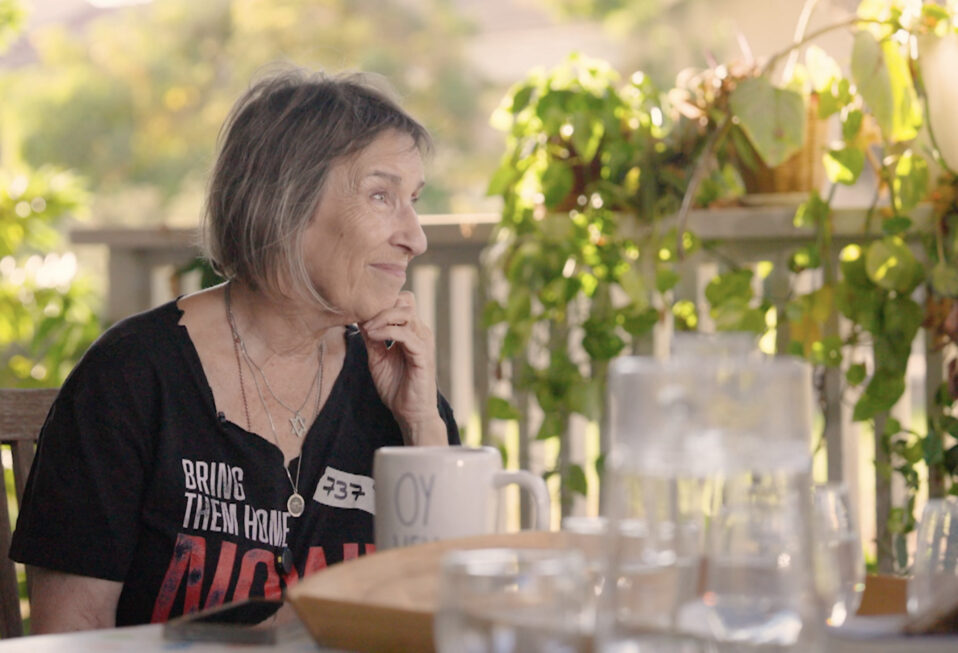By Arlene Bridges Samuels
Celebrations are taking place across Israel this week, as the world’s only Jewish nation remembers its dramatic beginnings 75 years ago. Based on the Hebrew calendar, Independence Day is the fifth day of Iyar and originally took place on May 14, 1948.
That day, David Ben-Gurion, Israel’s first prime minister, stood up in a simple Tel Aviv art gallery and read the new nation’s Declaration of Independence. As Tel Aviv’s Independence Hall tour guide Isaac Dror recalled, “Ben-Gurion was standing here as the voice of 11 million Jews around the world who had no voice, who had no address and nowhere to go to.”
Ben-Gurion declared “Israel” to be the official name of the modern Jewish state—a national comeback according to Isaiah 66:8 (NIV): “Who has ever heard of such things? Who has ever seen things like this? Can a country be born in a day or a nation be brought forth in a moment? Yet no sooner is Zion in labor than she gives birth to her children.”
Not only has this nation been birthed; it has exhibited tremendous progress and growth. Such progress can be seen in the strength of Israel’s military—today one of the most powerful in the world—with tremendous advantage over its enemies in technology, training, and know-how.
The Times of Israel reports that Israel’s population is near 10 million, a 12-fold increase since the nation’s founding, according to the Central Bureau of Statistics. And by 2048, Israel’s centenary year, the population is predicted to hit 15.2 million.”
Israel has enjoyed solid economic growth, too. Reuters reported in February that Israel’s economy grew 6.5 percent in 2022—much stronger than most Western countries, according the Central Bureau of Statistics, which cited the nation’s growth in exports, investment, and consumer spending. In fact, this country—just the size of New Jersey—has the highest concentration of new businesses per capita in the world, earning it the nickname of “Startup Nation.”
Plenty of media are covering Israel’s current chaos: the ongoing demonstrations against the proposed reforms of Israel’s judiciary, the synchronization of proxy attacks by Iran’s Islamic regime on the Jewish homeland, and the reemergence of anti-Semitism—which has burgeoned from benign growths into dangerous melanomas worldwide.
Nevertheless, today, I am sharing—and rejoicing—over how Israel remains one of “The Best” nations for innovations across sectors of scientific and medical discovery and implementation. You will find information that might help you, your family, or friends.
First, join me in revisiting some of Israel’s past accomplishments and innovations, a tiny sample indeed! (Check out www.Israel21c.org—an excellent resource.) Motorola in Israel developed the cell phone technology leading to our smartphones. The global leader Watergen is the first to create a machine that makes drinking water from the air—a remarkable machine to witness in action. Our taste buds delight when we visit Israel, as personal proof that this tiny nation maintains the strictest food quality and nutrition standards in the world.
Environmentalists will appreciate that Israel is the only country that has more trees today than 50 years ago. For such a small country, Israel has absorbed more immigrants than any other country, with Jews from over 100 countries. In 1984 and 1991, Israel airlifted 22,000 Ethiopian Jews to safety, making it the only country in the world to bring a black population into freedom.
Israel’s innovations are fueled by its high number of scientists and technicians. Ranking third highest in the world for entrepreneurial initiatives, Israel boasts the highest rate globally of women entrepreneurs and those over age 55.
Several medical innovations include an emergency bandage that enables self-application to wounds and staunches blood flow so successfully that it’s used by armies in the U.S., Germany, Australia, and other countries. Good news for physical therapy comes in the form of an Israeli-created glove-like device that helps restore paralyzed hands and arms. Millions have benefitted from fingertip monitors for sleep disorders and cardiac issues.
Seeing one product demonstration was an emotional time for thousands of us at an American Israel Public Affair Committee (AIPAC) policy conference. We gasped and kept applauding when a paraplegic walked out on the stage aided by ReWalk, a robotic exoskeleton. It is one of Israel’s most famous inventions. The kibbutz-owned company Netafim invented smart drip and micro-irrigation that is improving crops in 112 countries.
Switching toward several more recent innovations, Believer Meats, a food technology company, addresses increased concerns about food shortages. As it says on its website, the firm creates cultured meats by growing “animal cells in fermentation tanks into actual meat without harm to animals, and at a fraction of the environmental cost, to transform our planet and secure nutrition for generations to come.”
Israelis also remain focused on water. In Mayu, for example, this startup aims to “fix” existing water by adding minerals—with a swirl. Their first product, Mayu Swirl, is on Amazon. Sports lovers should check out this Artificial Intelligence (AI) ability from an Israeli sports-tech company, WSC Sports. They won an Emmy at the 74th Technology and Engineering Emmy Awards, which curates real-time sports highlights. For children with dyslexia, Singit is an app that uses songs kids like and includes questions to learn vocabulary and meaning. It makes learning a foreign language easier. OrCam invented wearable devices equipped with high quality cameras for the visually impaired, helping them read text and recognize faces.
This brief tour of Israel’s significant presence in this world is summarized from God’s words in Isaiah 49:6. “It is too small a thing for you to be my servant to restore the tribes of Jacob and bring back those of Israel I have kept. I will also make you a light for the Gentiles, that my salvation may reach to the ends of the earth.”
The God of Abraham, Isaac, and Jacob always included us non-Jews in His beautiful, redemptive plan first through Jewish scribes as vessels for His Word, and the most profound love the world has ever known through Jesus. However, the millions of lights exemplified among the Jewish people to bless the world are beyond measure. It is my hope that after you have read this small sample, you will look for ways to advocate for Israel amid the Jew hatred raising its evil head, especially everywhere it is ignored. Silence and inaction from Christians will only feed the evil. Together, let us advocate for Israel, our spiritual homeland.
I am a Christian Zionist who is delighted to extend my appreciation and honor for all Israelis who have died defending Israel—which rebounds in a blessing for me and many millions worldwide fulfilling God’s promise to Abraham in Genesis 12:3: “And all peoples on earth will be blessed through you.”
Join our CBN Israel team with thanks to God for blessing our world with Israel:
- Pray with thanks to God for honoring His promises to bring Jewish people back to their homeland.
- Pray for Israel military’s vigilance and safety amid intensifying threats.
- Pray for the development of workable policies for Israel’s judiciary.
- Pray that Christian advocacy for Israel will increase exponentially.
Arlene Bridges Samuels pioneered Christian outreach for the American Israel Public Affairs Committee (AIPAC). After nine years on AIPAC’s staff, International Christian Embassy Jerusalem USA engaged her part-time as Outreach Director for their project, American Christian Leaders for Israel. Arlene is an author at The Blogs-Times of Israel, guest columnist at All Israel News, and has frequently traveled to Israel since 1990. She co-edited The Auschwitz Album Revisited and is a board member for Violins of Hope South Carolina. Arlene attends Israel’s Government Press Office Christian Media Summit and hosts her devotionals, The Eclectic Evangelical, on Facebook.


